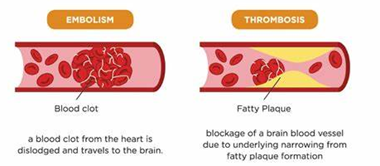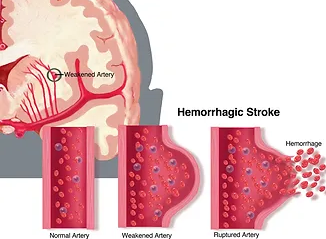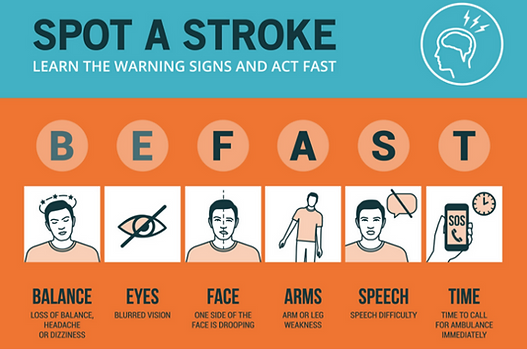Treatment and Diagnosis of Stroke Claims
Medical negligence claims for stroke involve cases where healthcare providers failed to meet the standard of care, leading to delayed diagnosis, mismanagement of treatment or failure to monitor, contributing to the stroke’s severity or occurrence.
In 2020, an estimated 27,428 Australians experienced their first stroke, a medical emergency that demands immediate attention and care. When facing a stroke, individuals rely on medical professionals for prompt and accurate diagnoses, as this significantly influences the chances of recovery and reduces the need for extensive rehabilitation. Unfortunately, misdiagnosing a stroke can lead to severe and permanent brain damage.
A ‘Systematic Review of Malpractice Litigation in the Diagnosis and Treatment of Acute Stroke’ in the US revealed that over 20% of acute ischemic strokes were missed in Emergency Departments across both metropolitan and regional referral hospitals. Symptoms of a stroke can be mistaken for other conditions, and when medical professionals fail to conduct necessary tests to rule out a stroke, it can exacerbate brain injuries. Emergency department doctors and GPs often serve as the initial contact for stroke victims, underscoring the importance of upholding their duty of care to investigate and escalate care as necessary.
Medical negligence in circumstances of a stroke include:
- Failing to diagnose or incorrect misdiagnosis
- Disregarding a patient’s symptoms
- Failure to facilitate treatment in a timely manner
- Fail to monitor a patient who shows risk factors or symptoms
- Failure to transfer to new facility
To pursue a claim against a medical practitioner for negligence, it must be established that they breached their duty of care, directly causing or worsening your injury beyond what would have occurred with proper diagnosis and treatment.
What is a stroke?
A stroke is the result of a sudden shortage in blood supply to the brain. This prevents the brain from receiving the oxygen and nutrients it requires from the blood. Consequently, the brain cells can die and leave permanent damage to the affected area.[1]
There are two main types of stroke: ischemic and haemorrhagic.


An ischemic stroke occurs because of a blood clot or blockage:
- Thrombotic stroke: a clot or blockage forms in a blood vessel in your brain
- Embolic stroke: a blood clot forms elsewhere in your body, and travels to block a blood vessel that supplies your brain.
A haemorrhagic stroke occurs when the wall of a blood vessel in the brain suddenly breaks or bursts, which causes a bleed in the brain.
Symptoms of a stroke are varied but include:
- Weakness or numbness of the face, arm, or leg
- Speaking difficulties
- Dizziness,
- Loss of vision or blurred vision
- Sudden onset headache
- Difficulties walking
For a patient suffering symptom of a stroke, there are multiple tools which will aid a diagnosis including:
- MRI scan
- CT scan
- Angiogram or ultrasound
- ECG
- Blood tests
Upon admission to hospital, these tests should be carried out immediately for any person presenting with symptoms or concerns for a stroke.


Treatment for Strokes
Stroke victims must receive immediate and lifesaving treatment to reduce the severity of damage to the brain. Delay or incorrect treatment can result in permanent brain damage and sometimes death.
- For ischaemic strokes, medications can be used to breakdown and dissolve the blood clot (thrombolysis). Alternatively, a thin catheter can be used to remove the clot, a procedure called endovascular thrombectomy.
- For haemorrhagic strokes, treatment can include; blood pressure control or surgery to relieve the swelling or repair the ruptured blood vessel.
The acute diagnosis and treatment of stroke is an incredibly time sensitive and high stakes area of medicine. If you believe that you have grounds for compensation due to how a stroke was handled by medical professionals, we can help you to claim what you deserve.
Long term consequences of stroke can vary depending on a few factors:
- The area and extent of the brain which is damaged – Different lobes of the brain control different functions of your body; including movement, speech, sight and thought.
- The type of stroke
- General health prior to the stroke
Stroke Compensation can help to cover:
- Medical and carer expenses
- Past/ future Income and superannuation lost
- Non-economic loss: Damages for pain and suffering
How to Establish a Stroke Negligence Claim
To establish an action in negligence, with your consent, our firm will collect your personal medical records. These will be reviewed by specialised medical negligence solicitors and expert medical advice to determine whether the care you received, failed to meet the standard of reasonable care which resulted in further harm to you.
Please call us on (02) 9387 1399 or email us at re*******@**********om.au
We look forward to sharing this journey with you.

